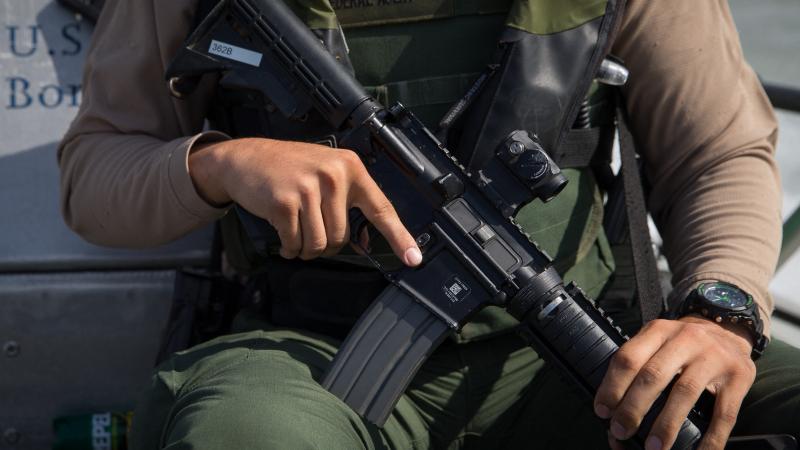Two more Texas school districts sued for electioneering by AG Ken Paxton
More public-school districts are being sued for allegedly using taxpayer resources to instruct staff to vote against school choice candidates in the Republican primary election.
More public-school districts are being sued for allegedly using taxpayer resources to instruct staff to vote against school choice candidates in the Republican primary election regardless if they are Republicans.
Texas Attorney General Ken Paxton sued Huffman and Aledo independent school districts on Friday alleging they used state resources to influence political races through illegal electioneering.
This is after Paxton first sued Denton, Frisco, Denison and Castleberry ISDs within one week “for illegal electioneering by using taxpayer-funded resources” to “stump for specific candidates during an election” and/or “promote certain political candidates and policies” related to school choice.
School choice is a top issue for Republican primary voters as Gov. Greg Abbott has endorsed candidates who he believes will support his school choice bill after multiple efforts failed last year during the regular and special legislative sessions.
After a Senate school choice bill failed multiple times in the House, a House education funding bill was proposed that included a school choice amendment. Twenty-one Republicans voted to kill the amendment, which would have allocated funding for an Education Savings Account pilot program for primarily disadvantaged and minority students. Five of the 21 Republicans retired; 16 are being challenged by pro-school choice candidates endorsed by Abbott and others.
In an effort to combat a growing statewide movement that supports school choice and is popular among the majority of Republican voters, public school officials waded into the primary election and are now facing the civil suits.
Similar to the first ISDs that were sued, Aledo ISD officials also stand accused of sending emails using state resources to instruct employees to vote against school choice candidates and policies, claiming the district was facing budget shortfalls and layoffs if they didn’t.
Unlike previous ISDs that used emails and social media to instruct employees to vote, Dr. Benny Soileau, Huffman ISD Superintendent, gave in-person instruction to faculty and staff at Hargrave High School. He encouraged everyone to vote in the Republican primary against the challengers of the 16 incumbents, calling them “Sweet 16,” according to the lawsuit.
“If we don't support those 16 representatives in the upcoming election, we roll into the next session almost assured that we're going to face a universal voucher bill that will change the face of public education for years to come. Because once it’s here, it's awfully hard to do away with it,” he said.
He also said the money used to fund the ESA “comes from the same pot of money that we get ours from.” This claim is contrary to the bill language, The Center Square reported.
Soileau said, “I'm going to stress to you the importance of showing up for polls and supporting those 16 individuals that have supported us.”
He also said six challengers have an “upper hand” to defeat the incumbents. “If six get beat, then they have the upper hand and they can walk into the next session pretty confident that they're going to be able to pass this voucher bill,” he said, referring to a Republican majority that supports school choice.
In order for schools to get more funding, “for us to get that new money, I think we have to have a good showing at this primary.”
He also said a Huffman ISD administrator would distribute the list of candidates they needed to support.
These actions directly violate the Texas Election Code’s prohibition against the use of “state or local funds or other resources of the district to electioneer for or against any candidate, measure, or political party,” Paxton said. “I am extremely troubled by this pattern of government officials engaged in illegal electioneering. These are government employees charged with the education of our children. They must respect our laws.”
Because the Office of the Attorney General falls under the executive branch and not the judicial branch, the Texas Constitution prohibits the office from criminally prosecuting Election Code violations, as recently ruled by the state Court of Criminal Appeals in Texas v. Stephens. However, the Texas Constitution and state law do not prevent the OAG from seeking civil injunctive relief to get a court order to prohibit school districts from attempting to influence elections.
“It is absolutely improper for publicly funded entities like school districts to engage in electioneering as Denton ISD has done,” Paxton said. “State law prohibits government officials – including school district personnel – from using either their positions of authority or taxpayer resources to influence the outcome of elections. Government officials everywhere are on notice that I will use every legal remedy available to me to stop school districts from influencing or coercing their employees to vote any particular way, especially when a district uses taxpayer resources and money to do so. Our elections must be completely protected from any illegal interference.”
So far, the district court of Collin County granted a temporary restraining order against Frisco ISD and the District Court of Tarrant County granted a temporary restraining order against Castleberry ISD. The courts directed the districts and their employees not to use any funds or resources to engage in electioneering in violation of Texas Election Code.














